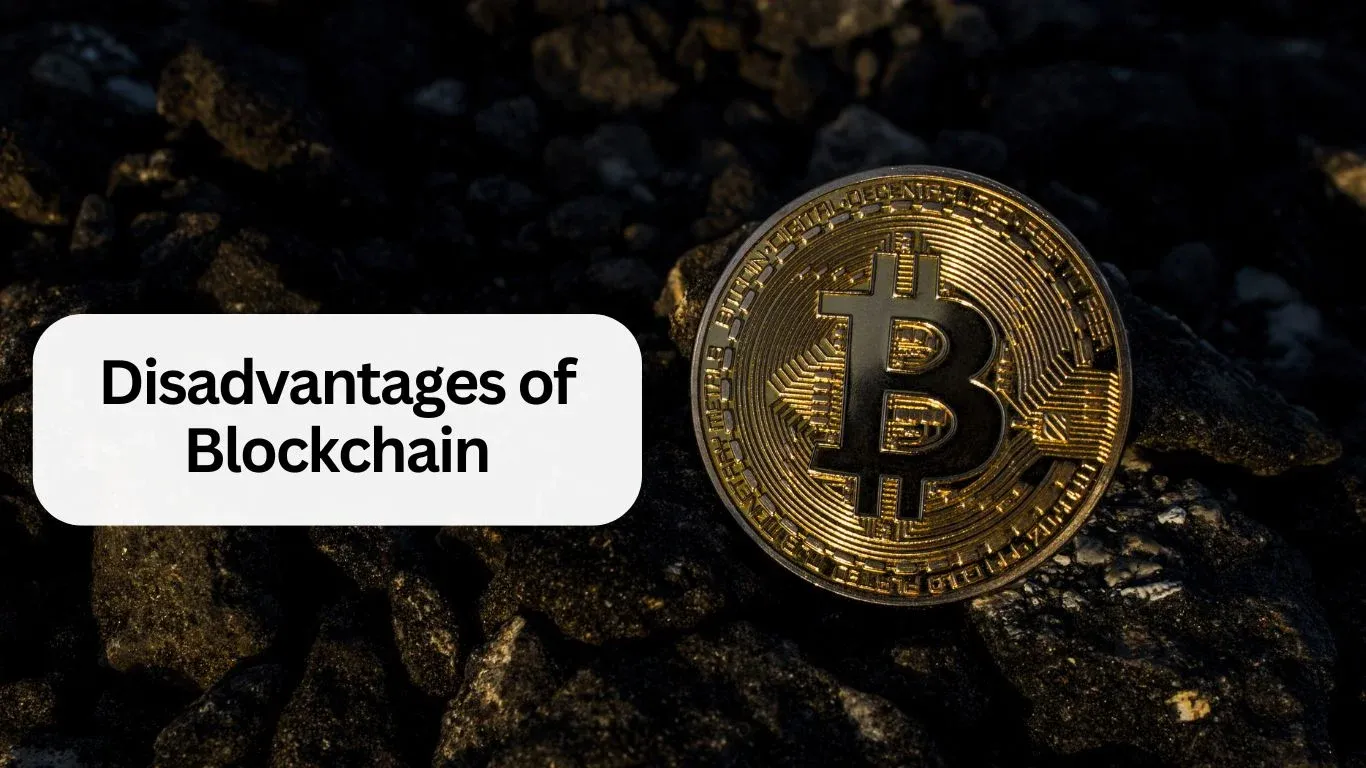Summary
(Blockchain technology is revolutionizing industries, offering benefits like transparency, security, and decentralization. However, it also has limitations, including scalability issues, energy consumption, and regulatory concerns. This blog explores the core advantages and disadvantages of blockchain to help readers understand its real-world potential and challenges across various sectors.)
Blockchain is a decentralised digital ledger that stores assets in an immutable and transparent manner. In a blockchain, users share ownership of the network. This means that no one has authority over the network. Blockchain stores data in 'blocks'. When a block is full of information, it closes, and another block opens. Every block contains a 'hash' of the previous block, thus forming a chain. Now that the concept of blockchain is clear, let's dive into the disadvantages and advantages of blockchain.
Get Complete Details From Expert
Advantages of Blockchain

Introduced in 2008 by Satoshi Nakamoto, blockchain was hailed as a revolutionary technology. Let us look at the advantages of blockchain and how it is different.
Security
One of the main advantages of blockchain is its secure nature. With the help of cryptography, the technology prioritises data security. Moreover, the immutable nature of this decentralised ledger makes hacking or altering any data almost impossible. This makes it an ideal choice for various industries, especially BFSI (Banking, Financial Services and Insurance).
Cost-effective
One of the biggest drawbacks banks and financial institutions face is the extravagant cost of processing transactions. Blockchain provides an easy solution to this. By eliminating third-party intermediaries, it streamlines the whole process. According to a 2023 report by Deloitte, blockchain is capable of saving billions of dollars in the financial sector worldwide.
Speed
Traditional financial processes take many days to process a transaction. However, blockchain enables direct and real-time transactions. This significantly speeds up the process, reducing delays as well as human errors.
Data Integrity
Data integrity is crucial to every industry be it the financial sector or supply chain. Blockchain technologies use cryptography to secure data integrity. With the help of a unique code called ‘hash’ it ensures the authenticity and integrity of the data. Any change or alterations will change the hash, thus making tampering impossible.
Disadvantages of Blockchain

While the advantages of blockchain are innumerable, it is also riddled with certain disadvantages. Let us go through them.
Complexity
Blockchain demands a high level of technological expertise to operate. Therefore, experts are scarce as the technology is relatively new. A master's in blockchain, however, will make you ready to tackle this challenge.
Data Modification
Blockchain, as previously mentioned, does not allow data alteration. This makes it very challenging to correct any mistakes. To change any data in a blockchain, all the code in the blockchain needs to be changed, making it time-consuming and expensive. Therefore, industries should diligently research their needs and see whether blockchain fits their needs, before switching to the technology.
Legal Regulations
Blockchain's features challenge the boundaries of legal regulations. Since it is decentralised, immutable and distributed, proper regulations have yet not emerged. This lack of regulations facilitates distrust in the technology, making implementation challenging. Since organisations are wary of legalities, widespread adoption is still a long way to go.
Scalability
The demand for blockchain is ever-increasing in this digital landscape. However, with growing demand, comes scalability issues. This essentially refers to how many Transactions Per Second (TPS) a blockchain can process. A greater volume of transactions tends to slow down the process.
Scope of Blockchain
In the Asia-Pacific region, blockchain has not been used other than managing cryptocurrencies. However, the market scenario predicts a strong demand for blockchain applications in several sectors. Apart from the obvious use case being finance, other industries such as healthcare, supply chain and manufacturing immensely benefit from this technology.
Healthcare industry
The healthcare sector can use blockchain to securely manage Electronic Health Records (EHR), patient consent and drug traceability. In India, IIT Madras has developed a blockchain-based healthcare application named 'BlockTrack'. It aims to simplify information exchange and secure medical data.
Banking and Finance
One of the major use cases of blockchain caters to the banking industry. Several Indian banking institutions have already implemented blockchain technologies. Notable names are ICICI Bank, Axis Bank and IndusInd Bank. Government banks such as SBI have also explored the advantages of blockchain. The Reserve Bank of India (RBI) is working on the Digital Rupee, which is set to launch in the future.
Supply Chain
Although still in its early stages, blockchain has fascinated the supply chain industry. With the potential to improve traceability and transparency, blockchain can immensely help manage transactions in a supply chain's lifecycle. One of the main advantages of blockchain in the supply chain is inventory management and cost reduction. Real-time visibility of stock helps reduce inefficiency.
Take the next step in your career ?
Conclusion
Every new and evolving technology has its advantages and disadvantages. While there are drawbacks, the advantages of blockchain outweigh them. In the fast-changing digital landscape, knowing blockchain is essential. With Amity Online University, you too can become part of the shifting IT market. Enroll in MSC in Blockchain, a 2-year blockchain online course, and become industry-ready today!
Check Out Our New Online Degree Programs



